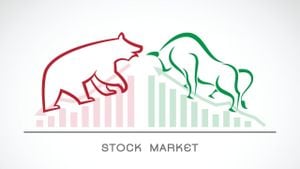Recent discussions spearheaded by the Ministry of Higher Education, Science, Research and Innovation (MHESI) have focused on the potential impacts of the resurgence of Donald Trump's policies, termed "Trump 2.0," on Thailand's economy and its research and innovation sectors. At the workshop titled "Trump 2.0: Crisis or Opportunity for the Thai Research and Innovation System," experts from various fields gathered to analyze how Trump’s "America First" stance may reshape Thailand's strategic approach to global economics and technology.
According to Assoc. Prof. Dr. Arm Tangnirand, a member of the OSPRI board, the policy of prioritizing American interests has significant ramifications for international collaboration. This includes doubts about the U.S. commitment to global agreements like the Paris Accord and other international organizations such as the UN and UNESCO. These shifts have raised concerns for countries, including Thailand, which must transition from a defensive posture to one of proactive engagement. Dr. Tangnirand emphasized, "We must shift from defense to offense to cope with new challenges rapidly and develop markets and technology."
The OSPRI has highlighted the importance of adapting strategies to not only survive potential economic pressures but to thrive as global supply chains undergo significant reconfigurations. One of the major impacts is expected to be the relocation of production bases to regions seen as stable and investment-friendly. Thailand stands at a unique intersection, potentially becoming a key player as companies seek reliable production sites away from traditional markets.
Prof. Emeritus Dr. Siriruk Songvilai, Chairman of OSPRI, noted the dual challenge—while Trump's return could pressure Thailand's economy, particularly its electronics, automotive, agricultural, and energy sectors, it simultaneously opens rich avenues for growth. "The coming of Trump may put pressure on Thailand's economy, particularly industries like electronics, automotive, agriculture, food, and energy," Dr. Songvilai said. He pointed out, nonetheless, this is also the moment for Thailand to emerge as a leader, especially as more foreign investment eyes regions with stable environments.
To navigate these new waters, OSPRI has identified four key strategies. The first is investments in future technologies, emphasizing deep tech such as AI, quantum computing, biotechnology, and clean energy. These sectors are expected to be the backbone of the future economy, attracting international investments and enhancing the industrial base.
Secondly, developing high-skilled human resources is imperative. This means cultivating expertise in STEM (science, technology, engineering, and mathematics) fields to sustain the high-tech industries' growth. Thirdly, establishing strong innovation ecosystems is pivotal; this requires synergy between government, private sectors, and educational institutions to spur technological advancements and knowledge transfer.
Finally, the fourth strategy emphasizes connecting with the world through effective science diplomacy. This tool is aimed at fostering international cooperation and technological exchange, allowing Thailand to leverage its geographical advantages as well as its relationships with major powers like the U.S., China, and Europe.
Thailand's ambitions to become the "Switzerland of ASEAN" hinge on its ability to maintain neutral policies and good relations with all parties involved. Dr. Songvilai expressed confidence, asserting, "Thailand could become the Switzerland of ASEAN by adopting neutral policies and fostering good ties with all parties." This could enable Thailand to not only attract investment but also create collaborative opportunities for scientific and technological progression.
Yet, competition is looming. Malaysia and Indonesia are enhancing their technological and trading capabilities, which could overshadow Thailand if swift action isn’t taken. The urgency for Thailand to adapt to the rapid changes plays right across the board—from technology improvement and workforce training to enhancing infrastructure—is underscored by the urgent need to prepare for economic shifts catalyzed by Trump's approach to trade and international norms.
While the world faces uncertain economic landscapes and geopolitical shifts, the intersection of these developments may offer Thailand unique pathways to not only survive but flourish. Critical measures must include enhancing innovation capabilities and increasing self-reliance to strengthen the country within the quickly changing global economy. Dr. Songvilai succinctly captured the sentiment when he stated, "The trade wars and economic decoupling are opening doors for Thailand to embed itself within the high-tech industry supply chains." This perspective offers both caution and hope as Thailand navigates its future amid these transformative influences.



